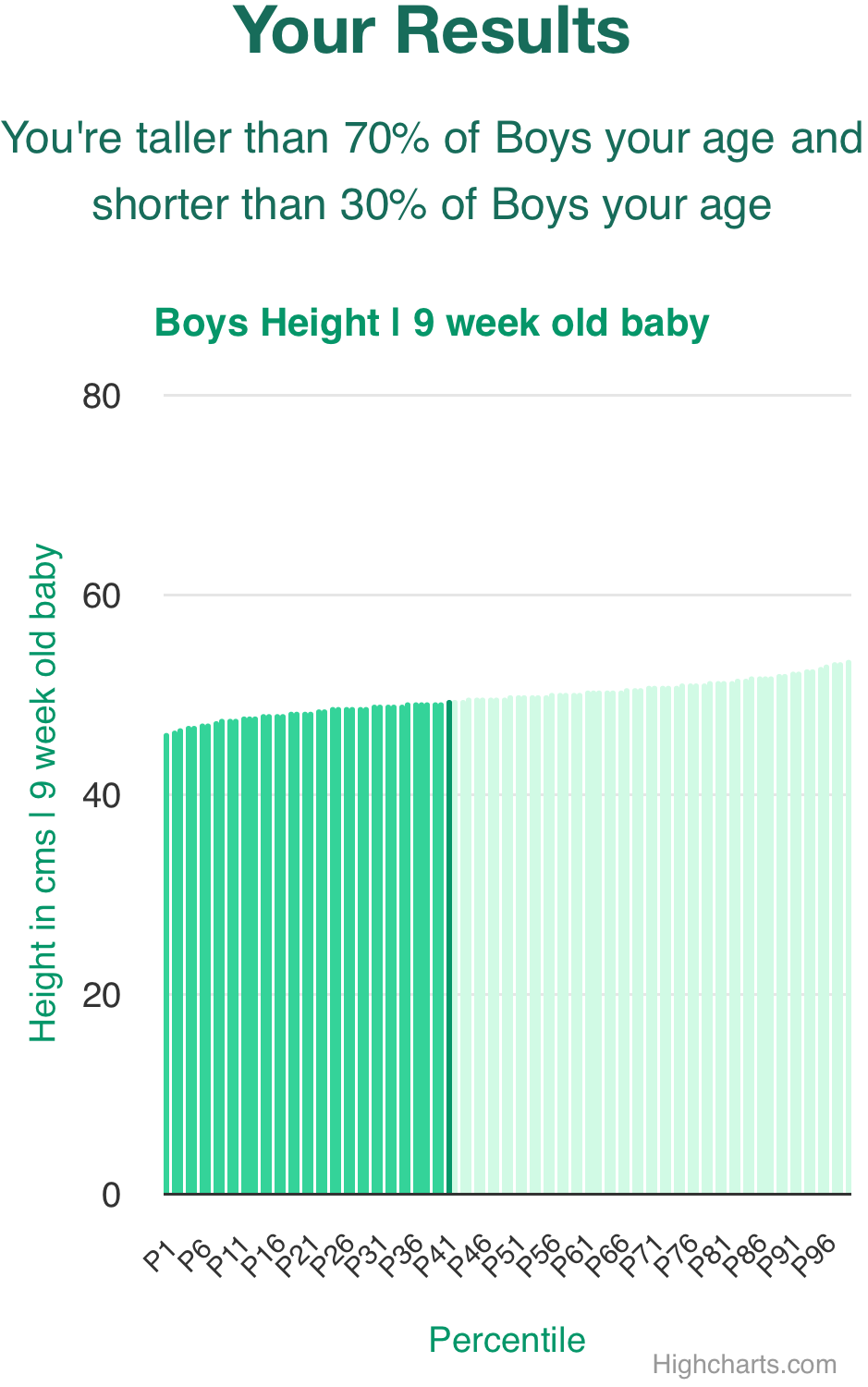Boys Height chart in feet for babies 9 week old baby

General Summary: 9 week old baby boys height
In most cases, height measurements for 9 week old baby boys will be in the range between 1 and 1 feet 11 inches. The average height for 9 week old baby boys is 1 feet and 10 inches, according to the CDC and anonymized data from users.
All Results
Enter your height measurements above to see how they compare
So far, we have recorded [0] height measurements for 9-week-old-baby boys on LifeMeasure!
(chart updates daily)
See more ages